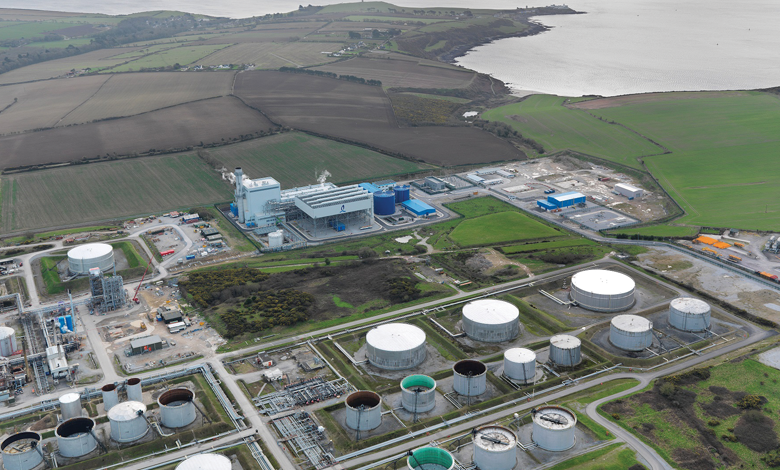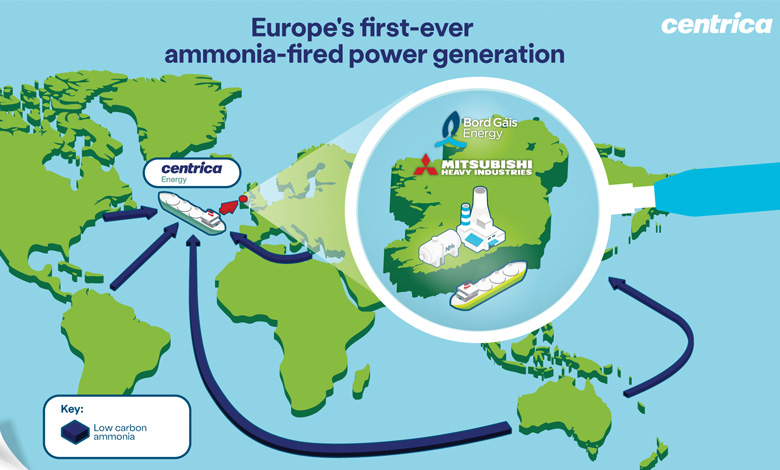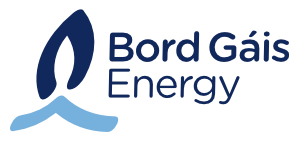
German Ambassador to Ireland: Hydrogen cooperation is ‘an obvious win-win’
29th April 2024
Hydrogen and the future of energy in transport
29th April 2024Navigating Ireland’s energy future: Bord Gáis Energy’s vision for hydrogen

Faced with significant challenges in establishing a secure and sustainable energy system, Ireland requires a united effort across the private sector, regulators, and the State.
Bord Gáis Energy holds that hydrogen, as a zero-carbon alternative to fossil fuels, can be pivotal in Ireland’s journey to net-zero and ensuring long-term energy security.
Internationally, strategies and policies in countries such as the United States, the United Kingdom, Japan, Germany, and the Netherlands aim to support hydrogen production, storage, and transport, with collaborative efforts to secure supplies.
For Ireland to realise the full potential of its hydrogen industry, close collaboration is needed between government and stakeholders as we move into the next stages of the national strategy.
The role of hydrogen in creating a net zero energy system
Between 2035 and 2040, Bord Gáis Energy predicts that hydrogen demand will increase almost sixfold through the need for a zero carbon alternative in the areas of industry, heat, power generation, and transport. This increased demand is due to the many benefits it offers, including:
- Versatility: Hydrogen’s versatility as an energy carrier addresses challenging-to-decarbonise sectors like industrial processes and freight transport. It is now globally recognised as a credible and scalable fuel option to facilitate the decarbonisation of these critical sectors.
- Storage and scalability: Hydrogen provides storable, scalable, and flexible resources for electricity production.
- Bridging the gap with wind energy: Green hydrogen – using electricity to split water into hydrogen and oxygen – can harness Ireland’s abundant offshore wind energy resources, to deliver significant volumes of an increasingly global commodity. As such, hydrogen should be seen as the key link between Ireland growing its wind resources offshore and actually achieving a net zero energy system.

Central to our vision for hydrogen
- Utilising offshore wind for hydrogen production: Bord Gáis Energy plans to harness Ireland’s abundant offshore wind resources to produce hydrogen at scale.
- Versatile applications and local distribution: The produced hydrogen will have many routes and uses, including powering the Whitegate Power Station and the peaking plants in Athlone and Dublin, while also being distributed through a local network to industries and data centres for daily operations.
- Surplus storage in Kinsale: Surplus hydrogen will be transported offshore to a repurposed storage facility in Kinsale, ensuring availability during low renewable energy production periods.
- Leveraging our parent company’s expertise: Drawing on our parent company Centrica’s expertise, Bord Gáis Energy leverages experience in developing hydrogen projects, including successful ventures such as maintaining a largescale storage facility at Rough and its redevelopment to store over half of the UKs potential hydrogen demand. Using this experience and expertise, we are investigating the potential for hydrogen storage at the Kinsale gas field.
- Partnerships for net zero goals: Our parent company’s successful trials in small UK clusters have stimulated demand and enabled collaboration across the hydrogen value chain. Bord Gáis Energy aims to replicate these synergies and investments in Ireland, working with like-minded partners to create an indigenous cluster utilising natural resources off the southwest coast.
Our key recommendations for strengthening Ireland’s hydrogen strategy
We view the publication of the Government’s National Hydrogen Strategy as a key first step in developing Ireland’s hydrogen industry.
In our feedback to the Government’s consultation, we advocated for these key inclusions:
- Establishment of long-term targets: The establishment of clear, long-term targets for hydrogen production. These targets will provide essential signals for investment and ensure the necessary volumes of hydrogen are available to support decarbonisation efforts.
- Co-funding for production and conversion projects: We emphasise the importance of co-funding production and conversion projects. This will offer confidence that the necessary volumes will be available to those pursuing hydrogen for decarbonisation.
- Development of certification scheme and market review: Bord Gáis Energy highlights the need for a certification scheme to support the export of hydrogen. Additionally, a thorough review of the power market is essential to integrate hydrogen effectively alongside wind and solar energy sources.
- Holistic energy system review: A comprehensive review of the energy system to optimise the integration of gas, electricity, and hydrogen networks. This review will reduce constraints and costs while maximising the benefits of renewable energy sources.
Ireland stands at a pivotal juncture in its plans to scale up hydrogen production, crucial for ensuring energy security and decarbonising sectors of the economy. We must build upon the momentum gained from the publication of the 2023 strategy by putting in place policies, funding, and targets to develop a productive hydrogen sector.
As a key stakeholder and advocate for the hydrogen industry, we remain committed to working with government, agencies, and private investors to develop the next phases and help deliver a secure, reliable, and indigenous zero-carbon fuel source for Ireland’s energy needs.

